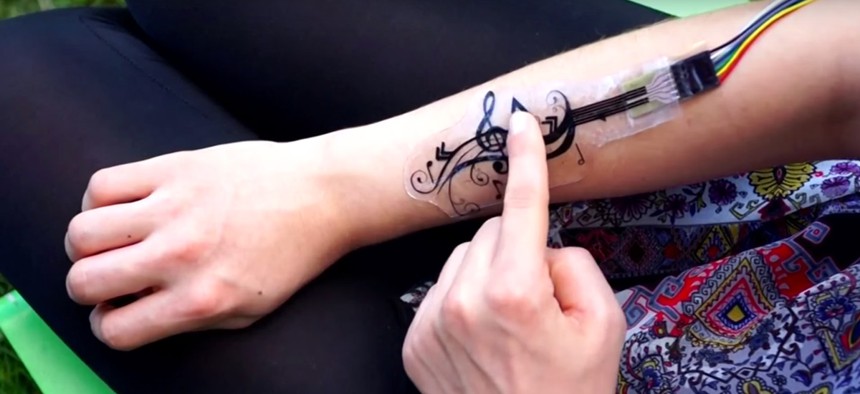Computer Scientists Invented a Way to Turn Your Skin Into a Mobile Touch Pad

YouTube via Reuters
A new product called iSkin uses silicon rubber and pressure-sensitive sensors to create an elastic film.
The latest in touch-screen technology involves the use of your own skin.
According to Reuters, a new product called iSkin uses silicon rubber and pressure-sensitive sensors to create an elastic film. When iSkin is combined with a medical-grade adhesive the electronic skin can be painlessly attached and removed from the body.
Because iSkin is so malleable, it could be suitable for almost any place on the human body: finger, forearm, back of the ear, any body part you’d want to slide your finger around.
Unlike the rigid wearable touch-pad technologies currently on the market, like the hard-surfaced Apple Watch, iSkin can pick up touch input even when the film is being stretched or bent, making it ideal for the wear and tear of daily life.
The technology, pioneered by researchers at the Max Planck Institute for Informatics, a computer science research group in Germany, is also easy on the eye. The computer-generated designs are laser cut to follow the sensor portions of the second skin.
iSkin is the continuation of research and development originally intended for robotic use. Developers thought the skin might provide robots a feeling similar to human skin, which Max Planck researchers then applied to the idea of a skin-like silicon to control electronic devices.
More work will be needed to make the technology practical. For instance, iSkin currently needs to be wired to a computer for operation, but developers say the technology could be made wireless and be powered on energy emanating from the human body.





